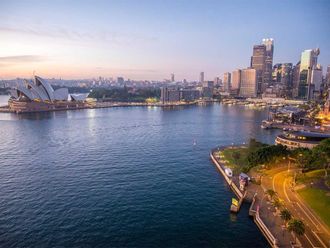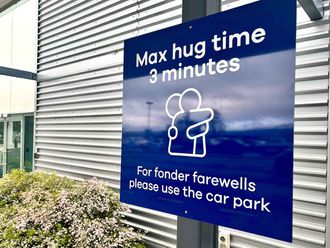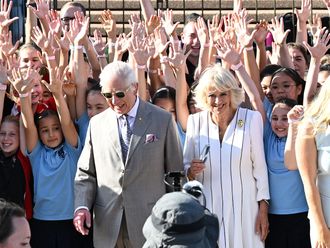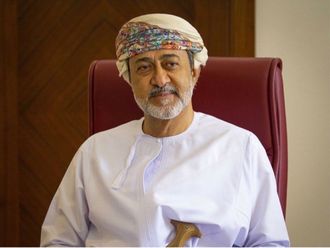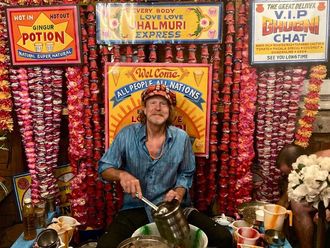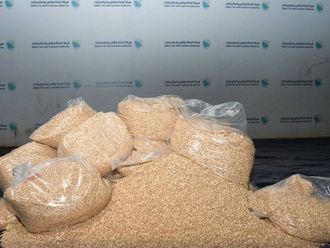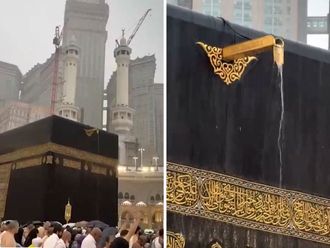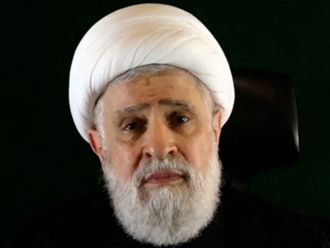Kano, Nigeria: Nigerian soldiers on Sunday sealed roads heading out of a key north-eastern city, blocking supply routes to remote towns where Boko Haram Islamists have taken power as a massive offensive against the insurgents spreads across the region.
The campaign against Boko Haram, which has said it wants to create an Islamic state in northern Nigeria, is aimed at re-establishing Nigeria’s ‘territorial integrity’, the military said after a state of emergency was declared in three areas.
The assault has included air strikes on Boko Haram strongholds in remote parts of north-eastern Borno state, and has spread to the state capital Maiduguri, the insurgents’ traditional home base, which residents said on Sunday had been blockaded.
“There is a huge build-up of trucks loaded with essential commodities... along the Baga road on the way out of Maiduguri to the northern part of the state,” said resident Ebrahim Yahaya. “The drivers said they have been prevented by the military from going northward.”
The phone network in Borno has all but collapsed since President Goodluck Jonathan on Tuesday declared a state of emergency there and in two neighbouring states, Adamawa and Yobe.
Defence spokesman Chris Olukolade said in a statement on Saturday that Islamist fighters who are on the run amid the offensive are scrambling for key supplies like fuel. He urged residents to report anyone trying to buy large quantities of fuel.
The supply shortage has started to bite in the town of Gomboru Ngala, on the border with Cameroon, where some Borno residents have fled to escape the air raids.
“Trucks bringing in goods from Maiduguri have ceased since last week,” said resident Grema Babagoni, who said the supply shortage has pushed prices up by as much as 25 per cent. “If the blockade continues for some time we may completely run out of supplies.”
Some residents in Gomboru Ngala have been contactable because they use Cameroonian phone lines.
The town has received an influx of people fleeing the nearby Marte district, one of the areas where Boko Haram chased out the government and removed Nigerian flags.
Marte has been among the areas targeted by air strikes, residents have said.
Meanwhile, the offensive is escalating in Maiduguri, the city where the Boko Haram insurgency was born.
The military on Saturday imposed a round-the-clock curfew in 12 neighbourhoods considered Boko Haram strongholds ahead of ‘special operations’ against the insurgents, a statement said.
Defence spokesman Olokulade on Saturday identified one neighbourhood that was being “combed to fish out any of the surviving insurgents.”
The operation could prove to be the largest ever against Boko Haram.
A brutal crackdown on the insurgents in 2009, concentrated most heavily in Maiduguri, killed more than 800 people and forced the Islamists underground for a year.
Since re-emerging in 2010, they have carried out scores of attacks, including gun raids and suicide bombings at a United Nations building, the office of a leading newspaper and churches. Many fear that like the 2009 crackdown, the current campaign may fail to crush the group.
Nigeria, Africa’s most populous country and top oil producer, has been urged to tackle root causes of the conflict, including acute poverty and excessive government corruption that has helped radicalise many young Muslims in the north.
There is also a risk of high civilian casualties, with Nigeria’s military having been accused of massive rights abuses in the past.
The conflict is estimated to have cost 3,600 lives since 2009, including killings by the security services.
Jonathan has said that negotiations remain possible amid the sweeping offensive, but the Islamists have so far showed no signs of wanting to talk.


